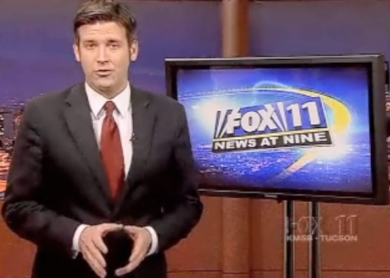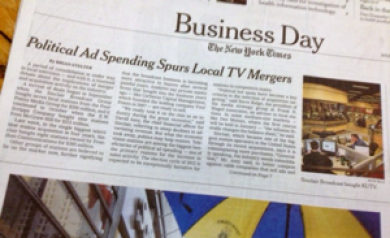Tucson Falls Victim to Covert Consolidation
Raycom Media has taken control of three TV stations in Tucson in a covert consolidation deal. The new virtual triopoly will result in dozens of layoffs, as local anchor Lou Raguse noted on the air yesterday.
When Raycom takes over operations of Belo-owned KMSB and KTTU, Raycom’s station KOLD will produce all of the news for the three stations. "KOLD will, by contract, provide certain services to support the operations of KMSB and KTTU, including producing local news in high definition, in-depth weather, traffic and sports, and website administration,” said a Belo spokesperson in an email to Broadcasting & Cable.

